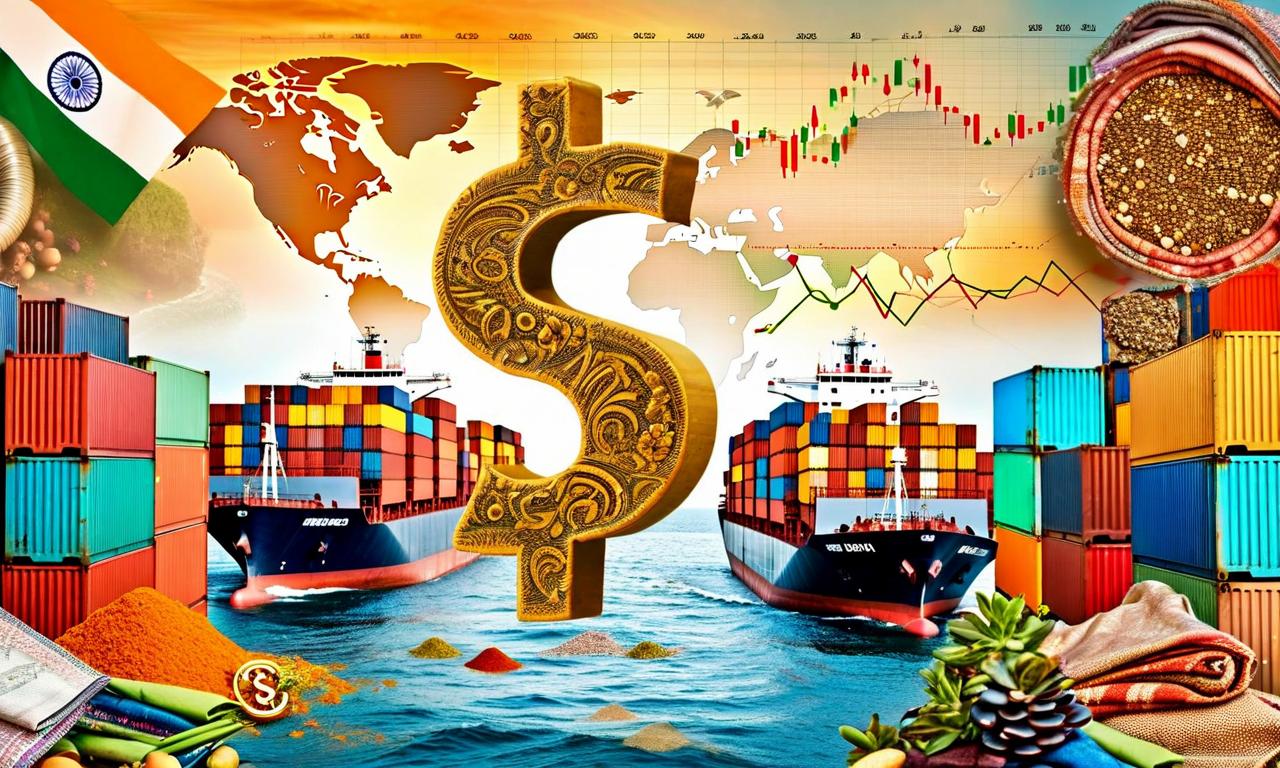RBI to Assess US Tariff Impact on Indian Exports Ahead of Policy Review
The Reserve Bank of India (RBI) plans to consult with industry stakeholders in September to evaluate the impact of 50% US tariffs on Indian exports. These tariffs affect 55% of India's US-bound shipments, worth $48 billion annually, particularly hitting labor-intensive sectors like textiles and jewelry. Indian exporters now face a 30-35% price disadvantage compared to Asian competitors. The RBI is considering potential monetary policy adjustments to mitigate the impact. MSMEs are seeking credit support, including interest payment moratoriums and enhanced bank limits. The consultation will also explore alternative markets, such as the India-UK trade agreement.

*this image is generated using AI for illustrative purposes only.
The Reserve Bank of India (RBI) is set to engage with industry stakeholders in September to evaluate the sectoral impact of the 50% tariffs imposed by the United States. This consultation comes ahead of the next monetary policy committee review, scheduled for September 29 to October 1.
Scope of Impact
The newly imposed tariffs potentially affect 55% of India's annual US-bound shipments, valued at $48.00 billion. Labor-intensive sectors are expected to bear the brunt of these tariffs, with textiles, gems and jewellery, and marine products likely to be the worst hit.
Competitive Disadvantage
The tariffs have created a significant pricing challenge for Indian exporters, putting them at a 30-35% disadvantage compared to competitors from China, Vietnam, and other Asian countries. This price gap could potentially reshape trade dynamics in the affected sectors.
RBI's Stance
RBI Governor Sanjay Malhotra has stated that the central bank is prepared to cushion the economy from the fallout of these tariffs. This proactive approach suggests that the RBI is considering potential monetary policy adjustments to mitigate the impact on affected industries.
Early Signs of Distress
The effects of the tariffs are already visible in key export clusters:
- Surat, Kanpur, and Tiruppur are showing reduced production with fewer work shifts.
- Indian textile exports to the US, previously worth $6.00-7.00 billion, have seen spring and summer orders nearly disappear following the tariff implementation.
MSME Support Requests
Micro, Small, and Medium Enterprises (MSMEs) are seeking various forms of credit support to weather this challenging period:
- Interest payment moratorium
- 30% automatic bank limit enhancement
- Collateral-free lending
These requests highlight the immediate financial pressures faced by smaller exporters in the wake of the tariffs.
Alternative Market Exploration
The consultation will not solely focus on the US market challenges. Discussions will also cover the India-UK Comprehensive Economic and Trade Agreement as a potential alternative market for Indian exporters, indicating a strategic approach to diversifying export destinations.
Implications for Monetary Policy
The timing of this consultation, just ahead of the monetary policy review, suggests that the findings could influence the RBI's decision-making process. The central bank may consider tailored measures to support affected sectors while balancing broader economic objectives.
As the RBI prepares for these crucial discussions, the export community eagerly awaits potential support measures that could help navigate the challenges posed by the US tariffs. The outcome of this consultation could shape both sectoral strategies and national economic policies in the coming months.
























